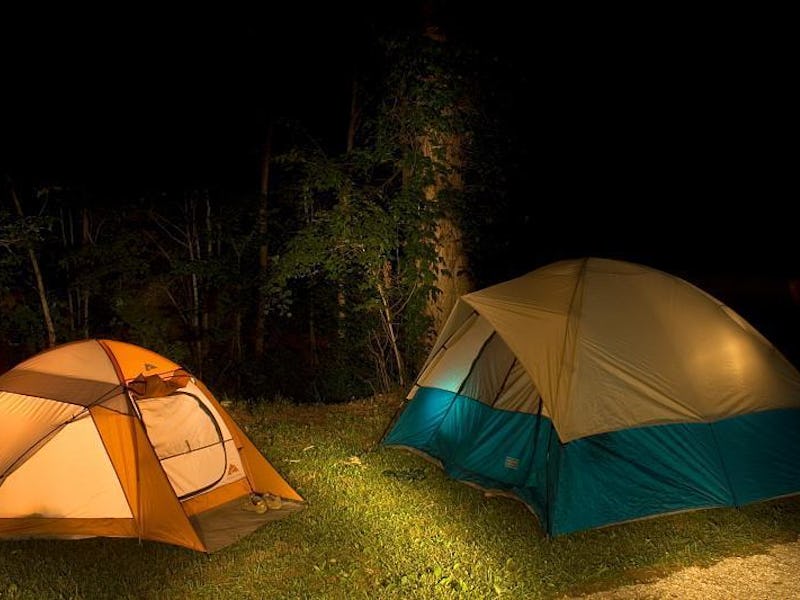The Cure to Insomnia: Go Camping
All you need is a single weekend.

If you aspire to re-set your circadian rhythms and become one of those “early to bed, early to rise” types, a new paper says you can — just spend a weekend in the woods, according to a study published Thursday in the journal Current Biology.
Researchers — who had previously studied the benefit of a week-long summer camping trip on sleep cycles — found that not only could a similar effect be achieved in winter, but that campers could also get 69 percent of the same effect with just a two-day trip.
The “reset” effect on our internal clocks comes down to exposure to natural light. Our constant exposure to electrical light — from phones, computers, overhead lighting, and more — actually sets our circadian rhythms back by about two hours and 36 minutes. Taking that electrical light away and replacing it with natural light realigns those rhythms the way they were meant to be. People become naturally inclined to sleep earlier and wake earlier. What’s amazing is that this change occurs practically overnight.
“Because [the circadian clock] is a master coordinator of our physiology, we wanted to understand how our modern environment impacted it,” Kenneth Wright, a professor of integrative physiology at the University of Colorado Boulder and the paper’s lead author, told Inverse by phone. “Regardless of the season, our clocks are timed later in modern society [but] beyond that, our clock is sensitive to seasonal differences in the natural light/dark cycle. If we compare the natural summer versus the natural winter light cycle, our internal biological night is longer in winter than summer.”
As sleep-hacks go, you need to put in a little work to continue seeing benefits. After returning from your (literally) restorative vacation, people should aim for a bedtime about an hour earlier than they were used to before their trip. Otherwise, says Wright, your internal clock will revert back to its old garbage ways within a couple of days. Think of the process as similar to how you adjust to jet lag after a long flight.
We know animals are sensitive to these kinds of seasonal changes, which inform their instincts about when to shed their coats or mate or hoard food. That same biological response to respond to seasons and light is found in humans. What that means, says Wright, we don’t quite know.